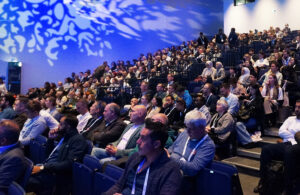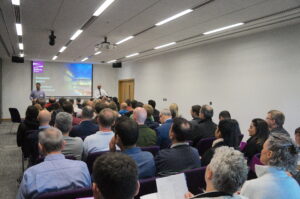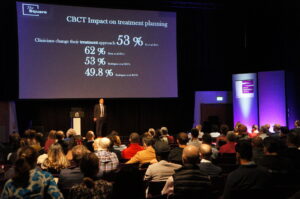
Education is a key part of the British Endodontic Society’s (BES) mission to support its members and further the nation’s dental health. Endodontology requires discipline, precision, and patience, in addition to continuing education throughout a career in order to stay up-to-date with cutting-edge techniques and ensure the best outcomes for patients. Various clinical approaches aim to prevent or delay the restorative cycle and are becoming better understood in the field, such as vital pulp treatments (minimally invasive options for endodontic treatment) and endodontic re-treatment (which gives the patient the chance to keep their tooth for longer).
The BES understand the value of education in these subject areas, amongst many others, which is why it offers many opportunities every year for delegates to attend study clubs, workshops, masterclasses, meetings, and even webinars to expand their knowledge and learn new skills.
 Vital pulp therapy
Vital pulp therapy
In the presidential year of Dr Phil Tomson, one of the major themes being explored by the BES is vital pulp therapy (VPT). This type of treatment has gained prominence in recent years thanks to an improved understanding of the benefits minimally invasive techniques afford patients. Phil has shared his aims regarding this, and why it is of particular importance for him: “My main focus for the coming year is a campaign around vital pulp therapy. I think this will be the next major development in what we do in endodontics. I feel that vital pulp therapy has been pushed to the side and, until now, has not been widely recognised as a predictable treatment. However, there is a building clinical evidence base which suggests it can be predictable in a number of different presentations. We have been discussing the treatment approach in the endodontic community for some time now, and my aim is to raise awareness of vital pulp therapy amongst GDPs and change the culture of how a vital pulp is managed. In reality, it is GDPs who treat the most endodontic cases, so extending education and awareness in these circles will enable us to have the biggest impact. This is a project that is close to my heart as it relates to my own original research in pulp biology.”
Expanding knowledge of alternative endodontic treatment types to traditional root canal treatment amongst GDPs expands the offerings that will inevitably become available to patients in the coming years. The BES successfully launched its inaugural Early Career Group Masterclass on this topic, highlighting the importance of learning these skills in the early stages of a dentist’s endodontic experience.

Endodontic retreatment
Endodontic retreatment is another area where increased education is essential. It is a complex procedure which requires advanced training that can lead to fewer extractions when performed successfully, and which many with an interest in endodontics would like to improve their skills in. As such, the BES centred its first hands-on workshop around this very topic, aiming to improve the clinical skills of delegates through exploring decision-making and practical challenges associated specifically with endodontic retreatment.

A varied education
Additionally, the BES is now offering a webinar series in order to broaden the educational opportunities for members. Phil said “This is part of our aim to increase the resources available to members, and to draw in those who are interested in endodontics and are keen to learn more. This is a really exciting initiative, and one which I hope will have a big impact on the field.” These sessions are presented by experts in the field, and create an accessible environment for clinicians to learn.
In order to expand your education in endodontology, clinicians with an interest in the field or who have been providing endodontic treatment for many years will benefit from a membership with the BES. Through multiple channels, the BES aims to offer its members a high quality of educational resources, in addition to numerous in person events throughout the year to encourage learning and networking.

For more information about the BES, or to join, please visit the website www.britishendodonticsociety.org.uk or call 07762945847














 Vital pulp therapy
Vital pulp therapy

